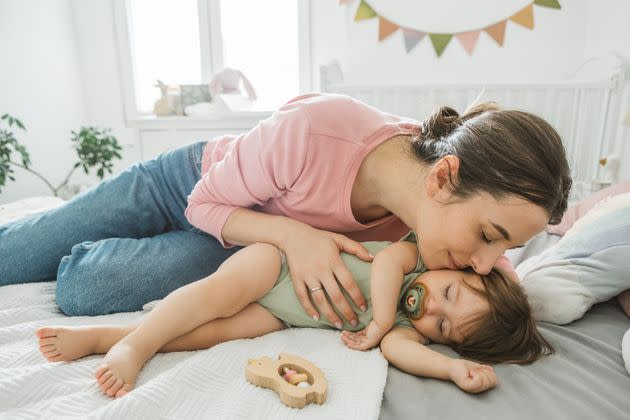The REAL Reason Toddlers Need Naps, And It's Not Just Tiredness

When your toddler naps it’s probably the only time in the day where you get to unwind or catch up with the chores. Those sacred one-three hours are when you can get as much or as little done as you would like!
Though your toddler is probably recharging for an adventurous evening, their nap is actually having an even bigger impact on them than you would think.
Why are toddler’s naps so important?
Naps in young children are vital to stop them from getting overtired and in turn cranky, overstimulated and upset.
But scientists have found another reason for your kid to snooze away. We know that children need quite a lot of sleep to function during the day, newborns can sleep up to eight hours in the day split up in multiple naps.
Alongside this, toddlers need a total of 12 to 15 hours which is split up in their night time sleep as well as one or two naps in the day.
So what actually happens during their naps?
Rebecca Spencer, a professor of cognitive neuroscience at the University of Massachusetts Amherst explains what actually happens during these naps.
She said: “All the new things you encounter in a day get thrown in there before being sorted into the cortex — which is a bigger, long-term filing system that can sort things by type — during sleep.
“So if you learn grandma used to be a ballerina and you already know she likes to knit, then those two things are integrated into your concept of grandma, which helps you create generalities and also makes each memory easier to find.”
She goes on to explain that kids are constantly bombarded with new information, for example they are learning numbers and the alphabet but also that the sky is blue.
In a Harvard Medicine article, it explained that naps can help with a child’s memory as research found that kids who nap soon after learning new words will most likely remember the words 80 percent of the time.
In fact, Rebecca is currently carrying out research to test the hypothesis that “kids get ready to transition out of naps when the brain is big enough to hold all the information of the day until night-time sleep.”
The University of Massachusetts Amherst sleep scientist has been funded with $6.7 million in grants from the National Institutes of Health (NIH), to carry out two studies that will track over time the brain development of infants and preschoolers to confirm the role of napping in early life.
So there you have it, napping is great for your kid to retain information!

